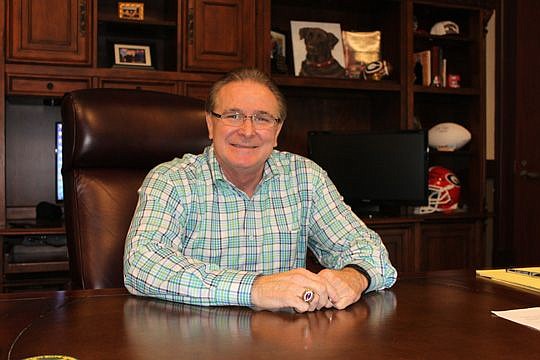
Ronnie Fussell has had some successes since he was elected Duval County clerk of courts in 2012.
His office was one of the first in the state to comply with a Florida Supreme Court mandate requiring full public access to electronic court records.
He secured free juror parking in a garage across the street from the Duval County Courthouse, eliminating the need for a cumbersome shuttle service.
The Downtown and Beaches offices added passport services that processed 4,000 applications and is expected to bring in $115,000 this fiscal year.
And an amnesty program, “Operation Green Light,” in April 2015 accounted for nearly 2,300 cases being paid in full and 355 driver’s licenses reinstated with another 633 made eligible.
The daylong event for traffic tickets and criminal fines waived a 40 percent surcharge on fees, which encouraged people to pay down the backlog.
In all, more than $513,000 was brought in and distributed among the city and state programs.
Fussell has had a couple of challenges, too.
The office’s initial compliance with the Supreme Court mandate in July 2015 drew complaints from some area attorneys who couldn’t immediately access files because they had not been screened to redact sensitive information.
The goal is to allow the public similar access as attorneys, but the initial backlog frustrated many attorneys who were used to the immediate access as the standard.
Now the majority of requested documents typically are available in 24-48 hours.
“I think the online records, I think it has come a very long way and we’re going to continue that,” said Fussell, a Republican who is running for re-election against Democrat Paula Bartlett on Nov 8.
In what likely was the most heated criticism for the office, Fussell at the beginning of 2015 discontinued using his staff to perform courthouse weddings.
The decision came days after a U.S. District judge clarified a previous order that said Florida’s ban on same-sex marriage was unconstitutional.
Fussell said at the time it was a balance between the time it took to perform the services and the civil rights of his employees, some of whom did not want to perform same-sex ceremonies.
The office, he said, is following the law — it issues licenses, but isn’t required to do ceremonies.
Still, strong criticism then came from the lesbian, gay, bisexual and transgender communities who felt the changes stemmed from their inclusion, as well from parts of the business and legal communities.
“People still get married in the courthouse,” Fussell said, pointing out that ceremonies are held in areas like the lawn and in courtrooms.
One of Bartlett’s main priorities is to reinstate full marriage services.
“The only original work the current Clerk of Courts has done over the last four years was to ban courthouse marriages because he has a personal issue with the law of the land,” said Bartlett in a statement.
She said Fussell is holding “the entire Jacksonville community captive” by failing to provide the service.
Properly marketed, Bartlett said, the chapel space built into the courthouse could generate an additional $100,000 in revenue. She said it made $26,000 as recently as 2014 by performing marriages.
Bartlett, an attorney, also wants to improve customer service in the office.
Given how marriages can still be performed, Fussell said the issue has been “blown out of proportion” and the office has tried to move on. He said he hasn’t received too many complaints about the subject since the initial outcry.
Fussell said if re-elected, he wants to improve on the efforts he’s already started. That includes furthering digitizing records and evidence, which costs more than $320,000 a year to house off-site. That’s down from about $400,000 when he took office, he said.
@writerchapman
(904) 356-2466